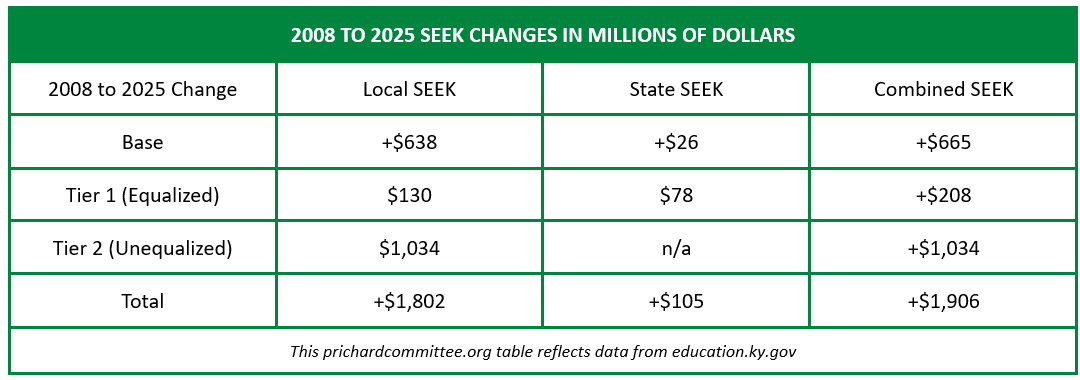Oct. 3, 2024
FOR IMMEDIATE RELEASE
Contact: Lisa McKinney
(cell) 859-475-7202
Kentucky Test Scores Show Slight Improvement
Community Accountability Necessary to Quicken the Pace
A statement from Brigitte Blom, President and CEO
LEXINGTON, Ky -- In the new public school learning results data released today by the Kentucky Department of Education, Kentucky has seen improvement in four of the measures that the Prichard Committee most closely tracks. Compared to 2023, the new data release shows:
- A 2% increase in the kindergarten readiness of students entering school last fall
- A 1% increase in grade 3 students scoring proficient or above in reading
- A 1% increase in grade 8 mathematics proficiency
- A 1% increase in the four-year high school graduation rate
There was no progress on two other priority measures:
- No increase in grade 3 mathematics proficiency
- A 3% decline in grade 8 reading proficiency
Even the measures that have improved remain far from Kentucky’s long-term goals. For example, only 47% of 2024 third-grade students were proficient or above in reading. If we continue improving at a pace of 1% each year, it could take 53 years to get all Kentucky students to the proficient level in that foundational subject.The results released today also confirm the urgency of Kentucky’s work to ensure that students of all backgrounds thrive in our schools:
- Even as grade 3 reading proficiency rose overall, it declined for English learners and for students with disabilities and showed no improvement for economically disadvantaged students and Hispanic or Latino students.
- Grade 8 math results also rose overall, but showed no improvement for African American, Hispanic or Latino students and English learners. In slightly better news, economically disadvantaged students and students with disabilities did see grade 8 mathematics improvement that was a bit stronger than that of their classmates.
- The other indicators provide similar evidence that we have not yet moved beyond our historic failures in closing achievement gaps.
The Prichard Committee will be doing further analysis on postsecondary readiness. It is difficult to compare this year’s 81% readiness rate directly to last year’s 79% rate, because this is the first year that readiness includes students who have been successful in work-based learning. While including that data going forward is beneficial, our analysis will need to consider how it affects year-to-year comparisons. We are also concerned to see that the percent of students reaching ACT benchmarks has declined and look forward to studying those patterns in more depth. If graduation rates remain steady or increase while postsecondary readiness measures decrease, that raises questions about how meaningful Kentucky’s high school diplomas are for preparing students for post-graduation life.
In response to today’s new data, the Prichard Committee urges Kentuckians in every community to review the results and develop new local efforts to ensure that our public schools offer all learners the full opportunities and supports they need to flourish. As a starting point, communities can work together on active family and community engagement, expanded and enriched learning times, integrated supports, and collaborative leadership and practices to support high-quality teaching.
The Prichard Committee also urges stronger state-level policy efforts and financial investments in our public schools. The new LETRS (Read to Succeed) program is off to a promising start, and added funding for kindergarten and school transportation are important starting points, but we need to do more as a commonwealth. Kentucky must deepen our efforts on teaching quality, working conditions, and shortages, and we must strengthen state SEEK funding, including meeting full transportation costs. Now is the time to invest appropriately in public education and ensure public dollars are not being diverted from the public schools that educate the vast majority of Kentucky students.
Overall, Kentucky’s future demands renewed and strengthened commitment to public schools that can equip each and every graduate has the durable skills and the depth of knowledge to succeed as adult learners, as workforce participants, and as contributors to our communities. It is every community members’ responsibility to help build a Big, Bold Future for the commonwealth with education at its core. Let’s get to work.















